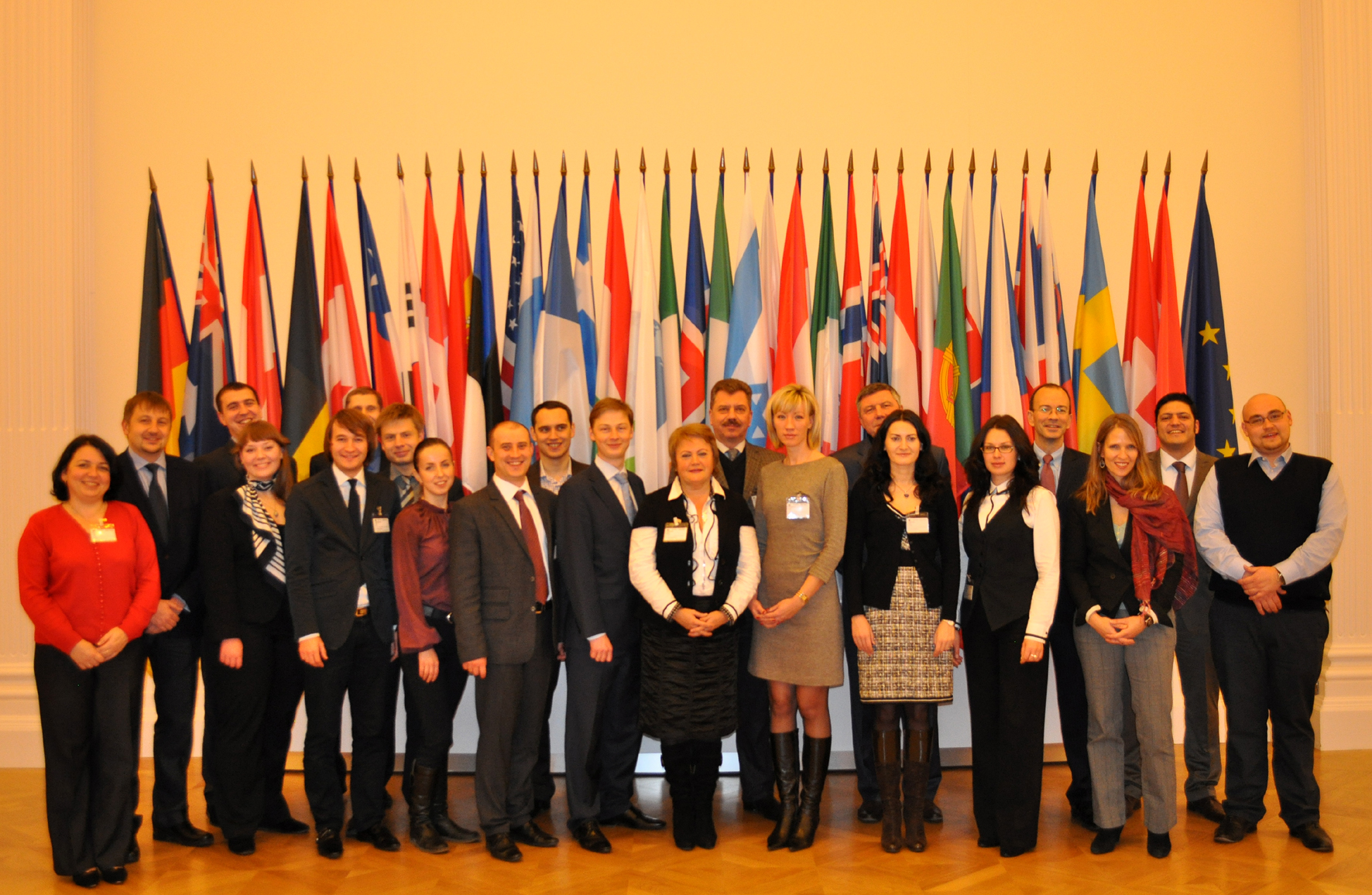This information session for 19 Ukrainian government officials was carried out on behalf of the European Commission’s Directorate General for Regional Policy (DG REGIO). It took place from 21 November to 02 December 2011 within the framework of the European Parliament’s pilot project to enhance regional and local cooperation by promoting EU regional policy on a global scale. It was the second in a series of four sessions that are implemented by the Deutsche Gesellschaft für Internationale Entwicklung (GIZ) GmbH. As a federal enterprise, GIZ supports the German Government in achieving its objectives in the field of international cooperation for sustainable development.
The information session focused on indicators for regional development and evaluation mechanisms of regional development. As OECD states, the value of indicator systems for regional policy actors extends beyond generating and distributing information. These systems promote learning and orient stakeholders toward results. They provide information to enhance decision-making throughout the policy cycle from resource allocation decisions to policy or programme adjustments.
With regard to evaluations, the European Commission emphasised that cohesion policy assistance should be subject to regular and rigorous evaluation. This improves the effectiveness and efficiency of programmes and provides knowledge on the impact of cohesion policy. There are three types of evaluation identified according to their timing: before (ex-ante), during (e.g. on-going), and after (ex-post) the programming period. Evaluation of cohesion policy is undertaken on a partnership basis, with the Member States responsible for the ex-ante evaluation and the European Commission for ex-post evaluation.
The training session contained a relevant mix of lectures and field visits. On the contents side, the course started with a briefing session in Kyiv covering logistics issues as well as introducing delegates to the topic. Participants were then transferred to Poland, visiting national and local public authorities. They also visited Austria focusing on the macro-regional Danube Strategy as well as on the Austrian territorial planning. In the second week, delegates attended working sessions at the OECD (Paris), Eurostat, the University of Luxemburg and at the European Commission (Brussels). During the summary session in Brussels, participants evaluated the activity and reflected on EU regional policy and its significance for Ukrainian challenges. Participants then returned from Brussels to Kyiv. The overall programme included 30 working sessions.
